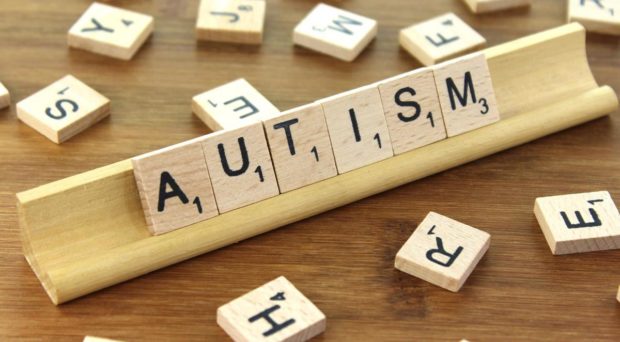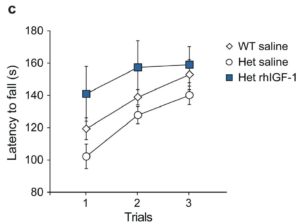
Rare genetic disorders are diagnosed through clinical genetic testing. The first-tier genetic test for individuals with neurodevelopmental delay is called chromosome microarray. This test can detect if part of a gene, an entire gene or multiple genes are missing or duplicated in an individual’s genome. For example, the deletions associated with Phelan-McDermid syndrome, as show in in research published in Molecular Autism are usually detected by chromosome microarray. In turn inducing these mutations into animal models can induce autistic phenotypes.
Often, though, the genetic cause of the condition is a small mutation in a gene, for example in DDX3X syndrome. In those cases, the diagnosis requires sequencing a set of known disease genes (gene panel) or all the genes in our genome.
A person can first be diagnosed with autism and then with a rare disorder or vice versa. In some cases, the person is referred to clinical genetics for another indication (e.g., developmental delay) and only after receiving a genetic diagnosis (Fragile X syndrome for example) will the individual be tested for ASD through autism-specific behavioral evaluations administered by a trained psychologist or psychiatrist. In other cases, the person is brought to the attention of a clinical geneticist after a diagnosis of ASD in order to identify the underlying genetic causes of their condition.
Studies on genetic disorders can inform autism and intellectual disability more broadly by shedding light on the defects during brain development that underlie these conditions.
The Seaver Autism Center at Mount Sinai is currently conducting research and leading studies on five rare genetic disorders associated with ASD and intellectual disability: Phelan-McDermid syndrome, Fragile X syndrome, FOXP1 syndrome, Helsmoortel-Van der Aa syndrome (also know as ADNP syndrome), and DDX3X syndrome.
For all these disorders, we have both a pre-clinical and a clinical program in place. We take an inter-disciplinary and translational approach: genetic findings are translated in cell and rodent models, which are then used to investigate the basic mechanisms of the disorders. Research in animal models (e.g., testing behavioral deficits in mice) is conducted in light of clinical observations. Importantly, these model systems, once validated, are utilized as pre-clinical tools for drug discovery and testing.
We also study these disorders in relationship to each other and to the broader autism population. In fact, studies on genetic disorders can inform autism and intellectual disability more broadly by shedding light on the defects during brain development that underlie these conditions.

Research published in Molecular Autism has shown significant beneficial effects of the protein insulin-like growth factor 1 (IGF-1) in a mouse model for Phelan-McDermid syndrome. Based on our findings in the mouse model, we are conducted the first randomized clinical trial in Phelan-McDermid syndrome, with the first results published in Molecular Autism.
Results provided proof of concept to advance knowledge about developing targeted treatments for additional causes of ASD associated with impaired synaptic development and function. Building on our findings in Phelan-McDermid syndrome, we are now conducting a clinical trial in autism.
In summary, understanding rare genetic disorders associated with ASD is important to improve clinical care and optimize treatment strategies for these debilitating conditions. Further, these specific disorders can offer an opportunity to understand autism more broadly and design therapeutics for a larger group of patients.
More articles on autism and neurodevelopmental delay research can be found at Molecular Autism, including a recent Thematic Series focuses on emerging rare genetic disorders and autism.
Dr. Silvia De Rubeis
Latest posts by Dr. Silvia De Rubeis (see all)
- Research on rare genetic disorders informs autism and leads to better clinical care - 26th February 2018
Hi, I am Dr Abhijit MD physician from India. My son Shreyash is suffering from autism spectrum disorder. He is having mutations of iqsec2 gene. Can gene therapy help him?